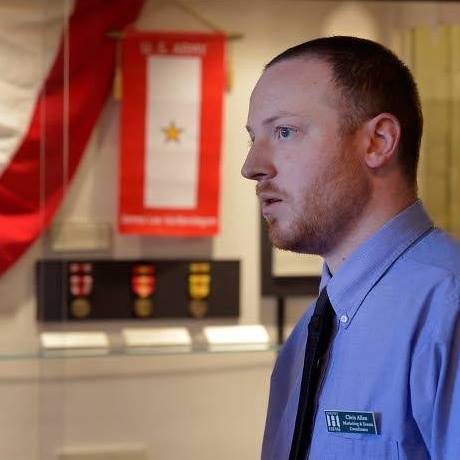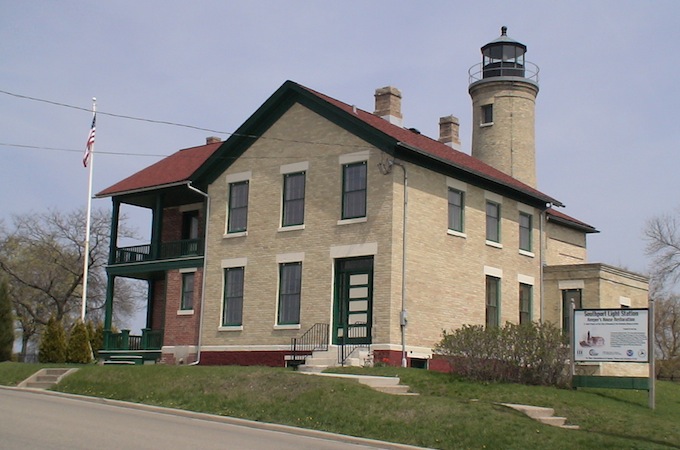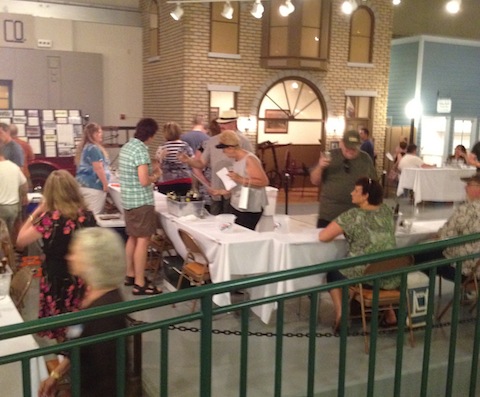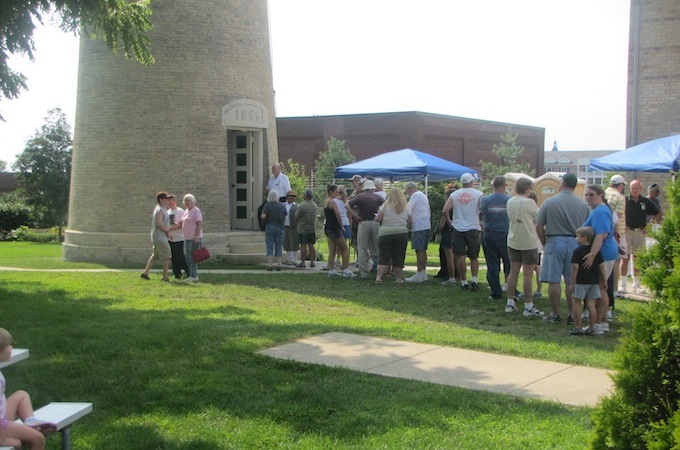About Us
Our Campus
Kenosha County Historical Society is a campus of two buildings with four exhibit galleries, a gift shop, staff offices and our Archival facility. The Kenosha History Center houses the main offices, three exhibit galleries, the gift shop and our Archives. The Southport Light Station, located next to the History Center building, features the fourth gallery.
The Southport Light Station is composed of the 1866 historic lighthouse and the adjacent 1867 historic Lighthouse Keeper's home. Both floors of the Lighthouse Keeper's home have been restored to a 1908 time period. The Southport Light Station Museum focuses on the shipping industry, fishing, lighthouse keepers and the live saving station. The Southport Light Station Museum is open mid May through the end of October.
Our Team

Chris Allen first came to the History Center in 2009 as an intern while studying during his junior year at Carthage College. It was during this two-year internship that he became passionate about public history and in particular the history of Kenosha. Chris spent the majority of his internship researching “Lost Industries” inside the museum’s archives and grew particularly interested in the Industrialization of Kenosha based around Simmons, a topic that would later become his senior thesis. After graduating Carthage College in 2010 with a B.A. in History, Chris entered into the mortgage industry where he was employed as a Loan Auditor and Treasury Analyst. In 2014, Chris was reunited with the History Center when he took over the role as Marketing and Events Coordinator. In addition to his role at the History Center, Chris is also the Head Boys Volleyball Coach of Tremper High School.
Chris was appointed as Acting Executive Director on 12/03/16 and officially became the Executive Director on January 1, 2017.
Cynthia Nelson, Curator of Collections/Archivist/Educator

Cynthia Nelson is a native of Racine, Wisconsin. Cynthia received her B.A. degree in Anthropology with an emphasis in museum studies, art history and archaeology from Beloit College and did graduate work at UW-Milwaukee and professional training at Campbell Center for Historic Preservation Studies. Her previous experience includes Wright Art Center, Logan Museum of Anthropology, Whitney Museum of American Art, The Field Museum, Wisconsin State Historical Society, and Mathis Gallery of Fine Art. Professional interests include Ethnographic art, modern architecture and furniture, children’s education, museum-college partnerships, and local history.
Dorothy McConville, Office Coordinator
Dorothy McConville grew up on the Wisconsin-Illinois state line, in Russell. After attending Zion Benton High School (with foreign exchange student time in Germany), she studied at the University of Illinois at Chicago. There Dorothy earned her Bachelor of Arts in German, as well as a commission into the United States Army. Since returning to the Kenosha area, Dorothy has worked at St. Catherine’s Medical Center Campus, Kenosha Unified, and most recently at Grace Lutheran Church in Racine.
Jonathan Martens, Exhibition and Collections Specialist
John O' Day, President
Kurt Jorgensen, Vice President
Mike Maki, Treasurer-Secretary
Directors
John Collins
Joyce Erickson
David Hankins
Karl Frederick
Meridith Jumisko
Michael Morrone
Dr. Tom Noer
Mark Wistar
Tim Wright
A Non-profit Corporation
The Kenosha History Center is a 501(c)(3) nonprofit corporation affiliated with the Wisconsin Historical Society. Portions of donations and event tickets may be tax-deductible, to the extent permitted by the Internal Revenue Service. Two-thirds of our operating budget comes from memberships, proceeds from events, donations and sales from our gift shop.
Our Mission
The Kenosha History Center collects and preserves artifacts, records and information vital to the understanding the history of the County's social, cultural, ethnic and industrial heritage since its settlement. The Center uses these materials, acting alone or in collaboration with other citizens and organizations, to disseminate knowledge of our collective local history through its museum, historic sites, research and outreach and publication programs for the benefit of the community and its visitors.




